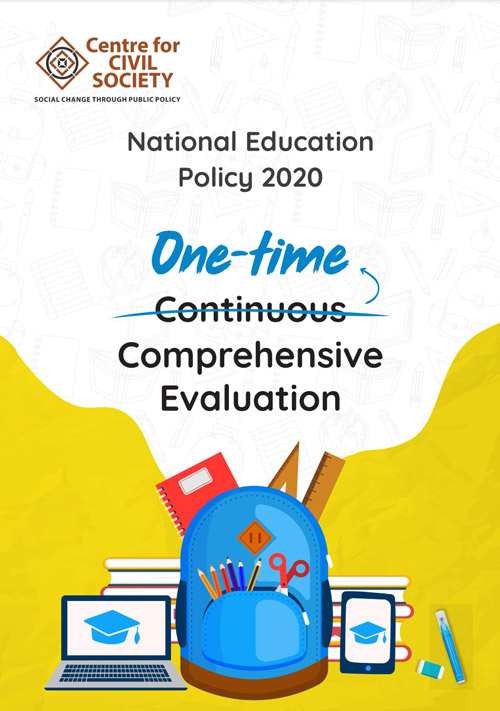The National Education Policy 2020 (NEP 2020) was launched in July, 34 years after the last National Education Policy in 1986. It aims to address the country's development imperatives and proposes to revamp the education structure, including education governance.
This monograph examines the key reforms pertaining to school education under the NEP 2020. These include the extension of the right to education, changes in the medium of instruction, learning assessments and outcomes, early childhood care and education, and strengthening foundational literacy and numeracy. The monograph also sheds light on the proposed regulatory framework for schools and the fee regulation norms. Some of our key insights are listed below. Expanding the right to education: Though the NEP 2020 takes a progressive step by expanding the ambit of compulsory education, it does so without fully considering the reasons for current pitfalls in compulsory schooling.
The policy offers solutions for dropouts without examining the reasons for the high dropout rate. It offers to bring in social workers, without outlining a sustainable strategy for their recruitment. Finally, it remains silent on the implementation challenges of Section 12 of the Right to Education Act. Three-language formula: NEP recommends a three-language formula and provides flexibility to the states. But, it fails to reconcile the need for regional medium instruction with the demand for English medium education. Further, it fails to outline how the needs of micro-regions with considerable linguistic diversity within the state would be accommodated. Education technology: Although the NEP sends a positive signal by acknowledging the need for strengthening education technology, it falls short in providing a concrete ed-tech policy to bridge the digital divide.
Foundational skills and Assessments: The NEP takes a holistic approach to testing and incorporates elements consistent with its vision. It proposes a formative, holistic report card and emphasises that the purpose of standardised tests is the improvement of the school and education system. However, it fails to address the pitfalls that earlier policies faced while implementing holistic report cards in the form of Continuous Comprehensive Evaluation. Further, though the NEP does well by aiming to achieve universal foundational skills at the earliest its reliance on informal ways, such as community volunteers and the “each one, teach one”-approach, leave much to be desired. Early childhood care: The policy hits the mark by including Early Childhood Care and Education (ECCE) under the ambit of free and compulsory education and emphasising on providing opportunities for early learning.
However, it ignores the Nurturing-care framework, fails to treat early childhood care as a set of goals that necessitate a separate program, and does not sufficiently engage with other dimensions of strong ECCE support (such as responsive caregiving, and safety and security). Regulatory framework for schools: The policy has taken big steps towards a progressive regulatory regime. The decision to separate the regulatory and provisionary functions of the government is a welcome move. It will aid in creating a level playing field for the private sector and hold the system accountable for improvement. Fee regulation: The policy does not go far enough and abolish fee regulation mechanisms.
Fee controls keep the prices artificially low and incentivise schools to seek regulation instead of competition, thereby discouraging innovation. Overall, the NEP 2020 has made considerable strides with what it wants to achieve as well as governance reforms. However, the policy does not sufficiently outline specific challenges it would have to overcome to meet its target or how it would sustainably finance the interventions.



